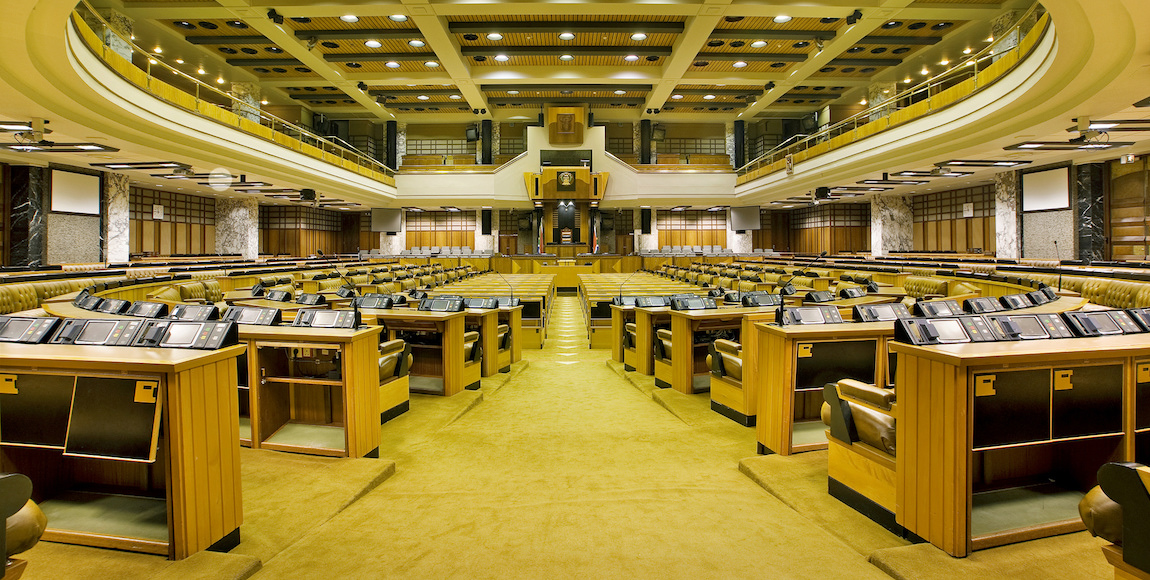Parliament is currently amending several bills that will have a direct impact on the average South African. The bills are in the public comment phase, which means there’s still time to let Parliament know how you feel about the proposed laws and have your views incorporated into the law.
Ilona Tip, operations director for the Electoral Institute for Sustainable Democracy in Africa (EISA), told The Daily Vox that opening legislation to public comment is what makes democracy function. “It’s always important to have citizens participate because it makes the concept of democracy more real and more alive, and it means that people are active in between elections and not only coming to vote,” she said.
Here is a list of three important bills that are open to public comment right now, and how you can contribute to them.
1. Choice on Termination of Pregnancy Amendment Draft Bill
This 2008 bill sets the criteria under which a woman may choose to have an abortion. Parliament wants to change the circumstances in which a pregnancy may be terminated, make it easier for pregnant women to access ultrasound machinery, and make it mandatory for pregnant women to get adequate counselling before choosing whether to terminate a pregnancy.
The bill has been criticised for seeking to restrict women’s reproductive rights. If the bill passes as is, it will allow women to terminate their pregnancies after 12 weeks only if their health is at risk or the foetus is severely malformed. Currently, the act allows termination if it will “significantly affect a woman’s social or economic circumstances.”
If you care about women’s rights to their bodies, email your submissions to bmbete@parliament.gov.za and mmabungane@parliament.gov.za by 9 August 2017 which, appropriately, is National Women’s Day.
2. Liquor Products Amendment Bill
This bill controls the legislation around alcohol in the country. The liquor industry is monolithic and powerful, and alcohol has devastating effects on society. There is a renewed movement to hold the industry to account so it’s important to know if government is making changes that will harm or benefit communities.
The amendments Parliament wants to make to the 1989 Act include renaming and limiting the powers of the Wine and Spirit Board, extending the Agriculture, Forestry and Fisheries Minister’s power to make regulations, and setting requirements regarding the manufacture of beer, traditional African beer, and other fermented beverages.
You can send your submissions to akakaza@parliament.gov.za by 4 August 2017. If you want to make oral submissions, you can send them an email indicating that you want to participate in the public hearings taking place on 15 and 16 August 2017.
3. Cybercrimes and Cybersecurity Amendment Bill
We all use technology and the internet, some of us post every detail of our lives online. This bill outlines what you can do if someone posts intimate images of you without your consent, distributes harmful messages online, or steals your data. Activists like Right2Know believe that this bill will have seven potentially negative consequences for online privacy and freedom.
Proposed amendments to the bill include imposing obligations on service providers to hand over the personal details of the person who illegally obtained or distributed harmful data, and determining investigative powers and jurisdiction of the state when investigating cybercrimes.
The closing date for submissions is 10 August 2017. Email your comments to vramaano@parliament.gov.za.
Both citizens and organisations can make submissions to Parliament, either in writing or in person.
Tip said it’s important to read the bill carefully before commenting because you have to comment substantially on what it says. “You need to be able to articulate quite clearly what your position is – what is the issue, what about the bill you find as positive, what in the bill you feel needs to be changed or is not being taken into account,” she said.
The submission should also:
- clearly address the submission to the committee in charge
- include your contact details so that the committee can reach you
- provide critical arguments to the problems and recommend solutions
- clearly state whether you would like to appear at a public hearing or give alternate people who will appear on your behalf
- mention if there are other people who share your position on the bill
The People’s Assembly website, which seeks to promote government accountability and enhance public participation in politics, has more tips for writing submission to parliament, which you can read here.
You can also check the Parliamentary Monitoring Group’s website for more calls for public comment on other bills before they go to Parliament.
Tip said it’s not always easy to tell whether commenting on a bill would make a difference to the final legislation but it’s worth the effort. “If you don’t make an effort, then you can’t complain. There is an opportunity to make those calls and you do need to have your say,” she said.
Editors note: This story has been updated.









